The Harmony of Your Bedroom: What Crystals Should Not Be There
Your bedroom should be your sanctuary, a place of peace and tranquility. Crystals have gained popularity for their spiritual and metaphysical properties, but not all crystals are suited for your sleeping space. In this guide, we’ll explore the crystals that should be avoided in your bedroom, ensuring a harmonious environment for rest and relaxation.
1. Black Tourmaline – The Protector

While black tourmaline is renowned for its protective qualities, it’s not the best choice for the bedroom. Its strong energy can create restlessness instead of the peaceful sleep you desire.
Alternative: Opt for calming stones like amethyst or rose quartz.
2. Pyrite – The Wealth Attractor

Pyrite is often associated with attracting wealth and prosperity, which is a wonderful attribute. However, in your bedroom, this energy might lead to overthinking and restlessness, rather than restful slumber.
Alternative: Choose calming stones like lepidolite or celestite.
3. Hematite – The Grounding Stone
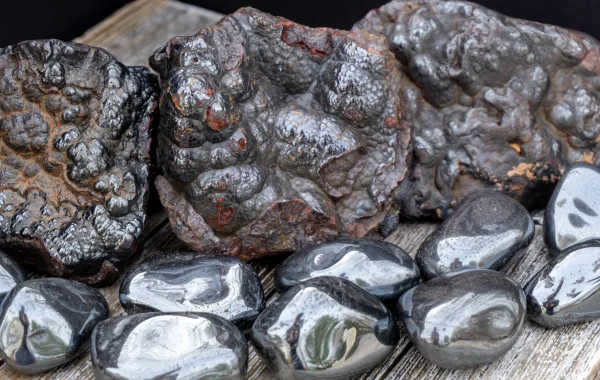
Hematite’s grounding properties can make it an excellent choice for many situations. Yet, its strong energy may not allow your mind to unwind in the bedroom.
Alternative: Consider calming stones like lepidolite or blue lace agate.
4. Clear Quartz – The Amplifier
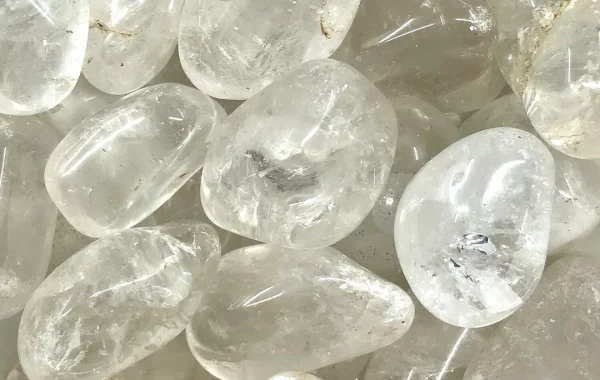
Clear quartz amplifies energy, including your thoughts and emotions. While this can be great for healing and manifestation, it might not align with the relaxation needed in the bedroom.
Alternative: Go for gentle stones like moonstone or lepidolite.
5. Citrine – The Energizer
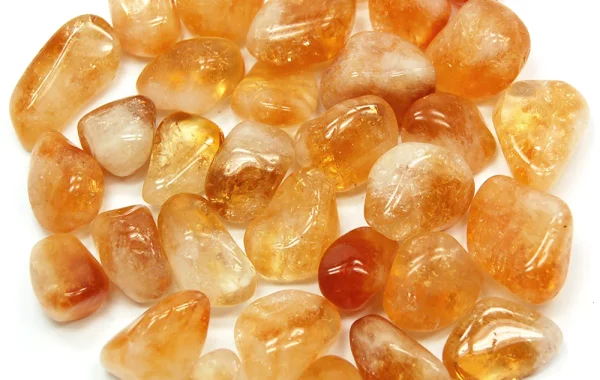
Citrine’s vibrant energy makes it a fantastic choice for boosting motivation and positivity. However, its invigorating nature can interfere with the tranquility required for peaceful sleep.
Alternative: Choose soothing stones like lepidolite or moonstone.
6. Carnelian – The Motivator

Carnelian’s motivation and creativity-boosting properties can be counterproductive in the bedroom, as they may keep you awake, thinking about your to-do list.
Alternative: Opt for calming stones like lepidolite or moonstone.
7. Red Jasper – The Energizer

Red jasper’s stimulating energy is great for motivation and courage. However, it’s not ideal for the bedroom, where you need to wind down and relax.
Alternative: Consider soothing stones like lepidolite or moonstone.
8. Obsidian – The Protector

Obsidian’s protective qualities can be beneficial, but its intense energy can lead to vivid dreams or nightmares, disrupting your sleep.
Alternative: Choose gentle stones like lepidolite or amethyst.
9. Moldavite – The Transformer

Moldavite’s transformative energy can be overwhelming for the bedroom. It’s best used when you’re ready for significant life changes.
Alternative: Go for calming stones like lepidolite or celestite.
10. Labradorite – The Intuitive Stone

Labradorite’s power lies in enhancing intuition, making it ideal for personal growth and transformation. However, these qualities might interfere with your sleep in the bedroom.
Alternative: Opt for gentle stones like lepidolite or celestite.
11. Lapis Lazuli – The Wisdom Stone
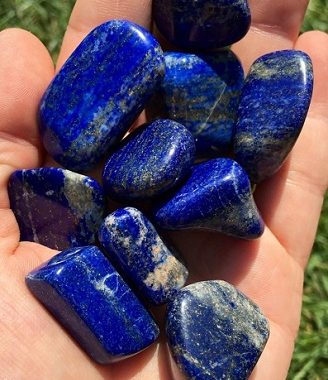
Lapis lazuli is known for enhancing wisdom and intellectual abilities, which can lead to overthinking if kept in the bedroom.
Alternative: Choose calming stones like lepidolite or amethyst.
In your quest for a serene bedroom, remember that the right choice of crystals can make a significant difference. Select crystals that promote calmness, relaxation, and sleep, enhancing the harmony of your personal space. Sweet dreams!
Note: The alternatives provided are suggestions for calming and sleep-friendly crystals. Personal experiences with crystals can vary, so trust your intuition when selecting crystals for your bedroom.
How to Create a Sleep-Enhancing Crystal Space
Now that you’re aware of the crystals to avoid in the bedroom, let’s explore how to harness the calming and soothing energy of crystals for a peaceful night’s sleep.
1. Amethyst – The Stress Reliever
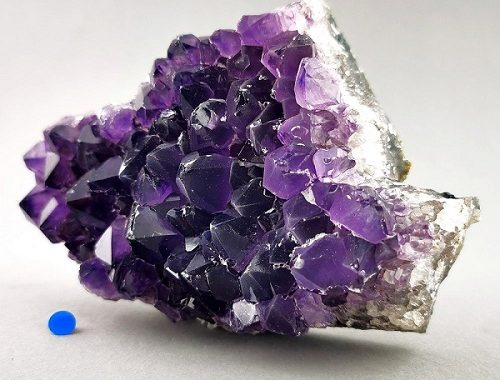
Amethyst is renowned for its calming and stress-relieving properties, making it an ideal choice for the bedroom.
Placement: Place amethyst clusters or geodes on your nightstand or under your pillow to promote tranquility.
2. Rose Quartz – The Stone of Love
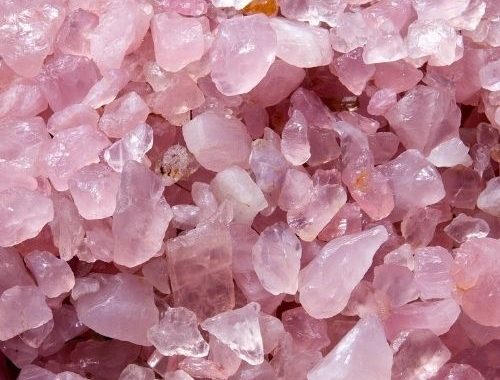
Rose quartz emits gentle and loving energy, creating a nurturing atmosphere in your bedroom.
Placement: Position rose quartz near your bed or under your mattress for emotional healing and peace.
3. Lepidolite – The Soother

Lepidolite is a calming and soothing stone known to reduce anxiety and stress.
Placement: Keep lepidolite tumbled stones or a piece of lepidolite under your pillow for peaceful dreams.
4. Moonstone – The Emotion Balancer

Moonstone’s serene energy helps balance emotions and encourages restful sleep.
Placement: Place moonstone near your bedside to promote emotional stability and dreams.
5. Celestite – The Angelic Stone

Celestite has a gentle, ethereal energy that aids in relaxation and harmonious sleep.
Placement: Position a piece of celestite on your nightstand or under your bed for angelic dreams.
6. Blue Lace Agate – The Communicator

Blue lace agate is known for its calming effect, helping you relax and communicate in a peaceful manner.
Placement: Keep blue lace agate on your nightstand or under your pillow to soothe your mind.
7. Smoky Quartz – The Grounding Crystal
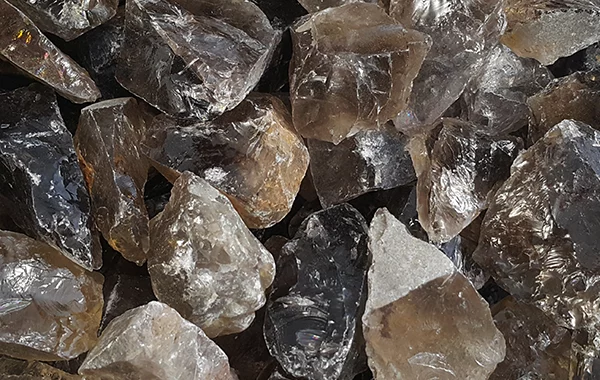
Smoky quartz has a gentle grounding energy, perfect for assisting you in unwinding after a long day.
Placement: Place smoky quartz near your bed to create a peaceful and grounded sleep environment.
8. Selenite – The Cleanser
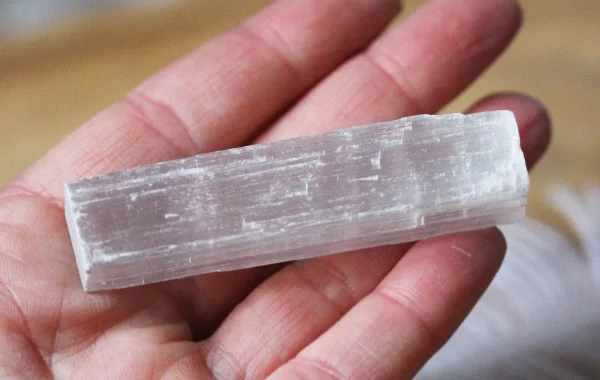
Selenite is excellent for clearing and purifying energy in your sleeping space.
Placement: Position selenite rods or towers around your room for energy cleansing and calmness.
9. Green Aventurine – The Comforter
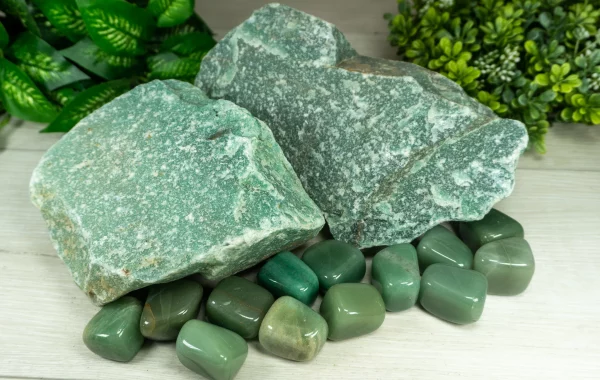
Green aventurine emits a comforting and harmonizing energy that encourages relaxation.
Placement: Keep green aventurine tumbled stones or a piece of green aventurine on your nightstand for soothing vibes.
10. Angelite – The Angel Stone

Angelite promotes gentle energy and communication with your guardian angels, fostering peaceful sleep.
Placement: Place angelite near your bedside or under your pillow for serene nights.
Remember that the choice of crystals is highly personal, and you should follow your intuition when selecting the ones that resonate with you. By thoughtfully placing these calming crystals in your bedroom, you can create a peaceful sanctuary that promotes restful sleep and harmonious energy.
How To Decorate A Slanted Wall Bedroom
Sweet Dreams and Serenity
Your bedroom is your refuge, and its energy profoundly affects your sleep quality and overall well-being. By choosing the right crystals and thoughtfully placing them in your sleeping space, you can transform it into a serene oasis. Say goodbye to restless nights and embrace the tranquil and rejuvenating energy that these calming crystals bring. Sleep tight and wake up refreshed!
Note: Crystals are not a substitute for medical treatment or professional advice. If you have sleep or health-related concerns, it’s essential to consult a healthcare professional.
FAQs on What Crystals Should Not Be in Your Bedroom
Can I keep any crystals in my bedroom?
While there are crystals you should avoid in the bedroom, many crystals, such as amethyst, rose quartz, and selenite, can create a serene and calming atmosphere, promoting restful sleep.
What’s the significance of keeping black tourmaline away from the bedroom?
Black tourmaline is a protective stone, but its intense energy might disrupt the soothing ambiance you want in your bedroom. It’s better suited for spaces where protection is a primary concern.
Why should I avoid hematite in my bedroom?
Hematite can be grounding and stimulating, making it less ideal for a peaceful sleep environment. Save it for spaces where you want to increase focus and energy.
How do I know which crystals are best for my bedroom?
Your personal intuition and energy preferences should guide your choice of crystals for your bedroom. Consider selecting crystals with calming and soothing energies to enhance the ambiance.
What’s the harm in keeping too many crystals in the bedroom?
Having too many crystals in your bedroom can create overwhelming energy. It’s best to maintain a balanced number and choose them thoughtfully to maintain a harmonious sleep space.
Are there any specific rules for placing crystals in the bedroom?
While there aren’t strict rules, consider placing crystals where they don’t interfere with your sleep or clutter your space. Experiment with different placements to see what works best for you.
Can I use these same crystals for children’s bedrooms?
Yes, many calming crystals suitable for adult bedrooms can also be used in children’s rooms to create a serene atmosphere. However, always ensure child-safe placements.
How often should I cleanse the crystals in my bedroom?
Regularly cleanse and charge your crystals to maintain their effectiveness. The frequency can vary depending on how often you feel the need to refresh your energy.
Do these crystal guidelines apply to all types of bedrooms, such as home offices or guest rooms?
These guidelines primarily focus on creating a restful sleep environment. In other bedroom types, you might prioritize different energies or intentions.
Can I use synthetic crystals or gemstones in the bedroom?
Natural, authentic crystals are generally preferred, as they possess unique vibrational energies. Synthetic or imitation crystals may lack the same qualities.
Remember that your own preferences and intuition play a significant role in choosing crystals for your bedroom. Explore and experiment to find the combination that resonates with you and creates the peaceful and serene sleep space you desire.
Conclusion
Creating a restful environment in your bedroom is crucial for a good night’s sleep. While crystals are popular for their healing and metaphysical properties, it’s essential to choose the right ones for your sleeping space. The crystals you surround yourself with can have a profound impact on your energy and well-being. By avoiding crystals with stimulating or intense properties, you can maintain the peaceful oasis that every bedroom should be.
